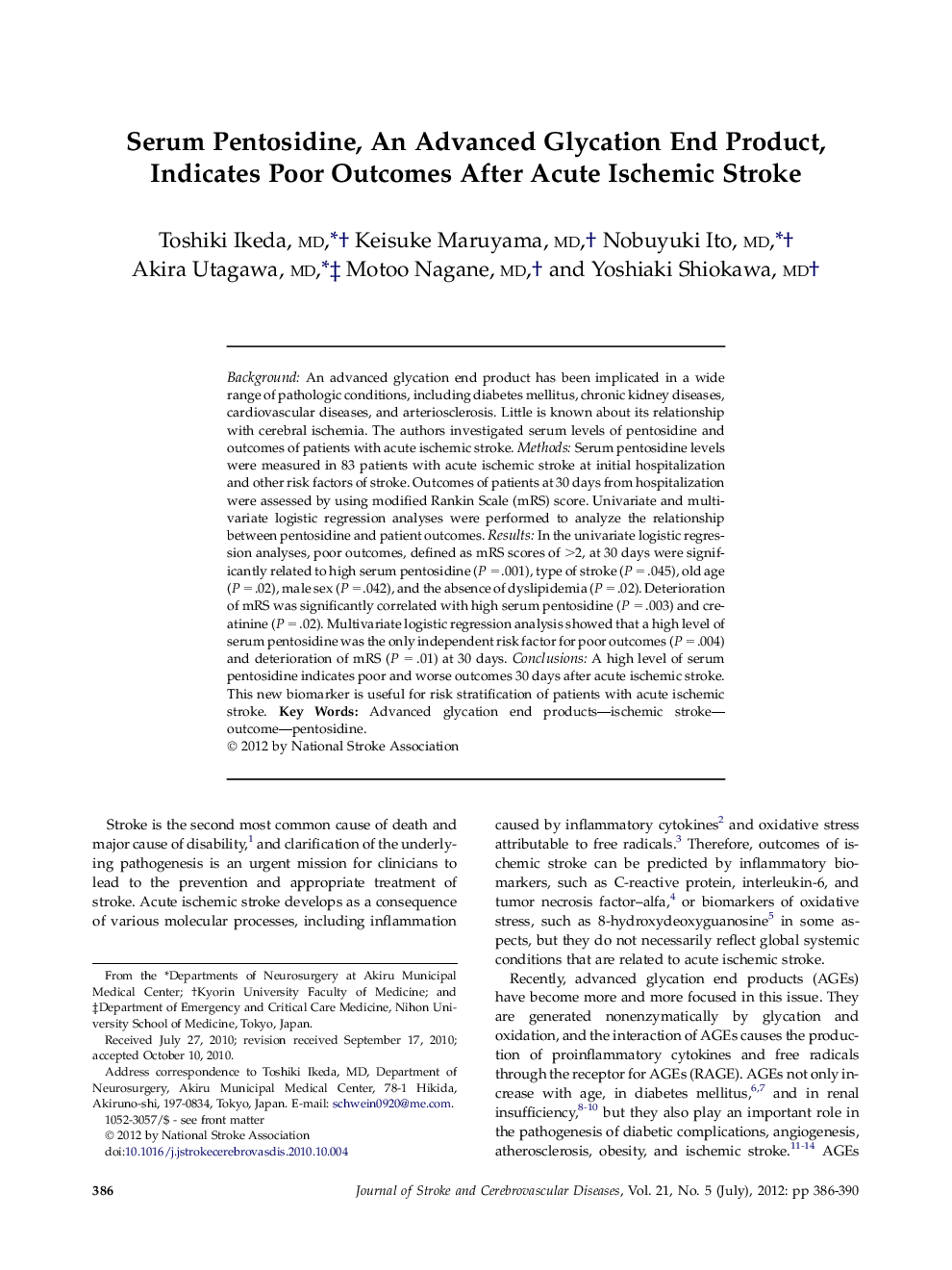| Article ID | Journal | Published Year | Pages | File Type |
|---|---|---|---|---|
| 2702633 | Journal of Stroke and Cerebrovascular Diseases | 2012 | 5 Pages |
BackgroundAn advanced glycation end product has been implicated in a wide range of pathologic conditions, including diabetes mellitus, chronic kidney diseases, cardiovascular diseases, and arteriosclerosis. Little is known about its relationship with cerebral ischemia. The authors investigated serum levels of pentosidine and outcomes of patients with acute ischemic strokeMethodsSerum pentosidine levels were measured in 83 patients with acute ischemic stroke at initial hospitalization and other risk factors of stroke. Outcomes of patients at 30 days from hospitalization were assessed by using modified Rankin Scale (mRS) score. Univariate and multivariate logistic regression analyses were performed to analyze the relationship between pentosidine and patient outcomes.ResultsIn the univariate logistic regression analyses, poor outcomes, defined as mRS scores of >2, at 30 days were significantly related to high serum pentosidine (P = .001), type of stroke (P = .045), old age (P = .02), male sex (P = .042), and the absence of dyslipidemia (P = .02). Deterioration of mRS was significantly correlated with high serum pentosidine (P = .003) and creatinine (P = .02). Multivariate logistic regression analysis showed that a high level of serum pentosidine was the only independent risk factor for poor outcomes (P = .004) and deterioration of mRS (P = .01) at 30 days.ConclusionsA high level of serum pentosidine indicates poor and worse outcomes 30 days after acute ischemic stroke. This new biomarker is useful for risk stratification of patients with acute ischemic stroke.
